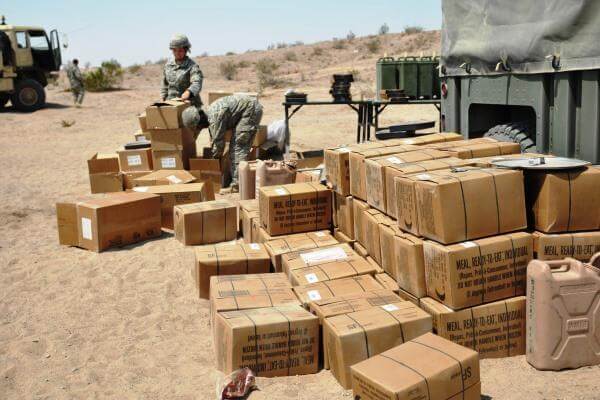The Army is recruiting volunteers for a stomach-churning challenge: Eat nothing but meals-ready-to-eat for 21 straight days. For those brave enough to volunteer, military fitness expert Stew Smith has two tips: Stay active and stay hydrated.
The service announced its experiment in a Dec. 11 release. To study gut health and how bacteria in the stomach are affected by the military meals, the U.S. Army Research Institute of Environmental Medicine's military nutrition division is recruiting volunteers to go on the all-MRE diet for three consecutive weeks.
According to criteria published by institute, volunteers must be between 18 and 62 years old and must not have prior gastrointestinal problems. They will receive up to $200 each to participate in the study. Apart from the shelf-stable meals, volunteers can consume only water and black coffee, according to a Military Times report.
MREs, designed to keep troops nourished during field training and in austere deployed environments, contain a gut-busting average of 1,250 calories apiece. Some claim the acronym stands for "meals refusing to exit" because of the binding effect repeated MRE consumption can have on the digestive system.
But Smith, a former Navy SEAL and military fitness trainer, said it's possible to avoid the worst of the MRE side-effects by consuming lots of water and working off excess calories.
"You definitely want to drink water," Smith told Military.com. "Depending on how much you weigh, anywhere from a half-gallon to a gallon a day."
As a good rule of thumb, he said volunteers should plan to drink half their weight in ounces -- 100 ounces of water for a 200-pound man -- and spread their water consumption out across the day.
The water, he said, will keep those on the MRE diet feeling good, and help to keep digestion regular, too.
For those consuming an MRE per meal, Smith said significant weight gain could be a problem if volunteers don't counteract the calorie-dense packages with extra exercise. He noted that it's also possible to lost weight on the MRE diet: Soldiers in Ranger school typically complete grueling training on just one MRE per day and can lose 35 pounds or more in the process.
For those who might struggle with boredom with the limited menu selection on the MRE-only diet, the Army has its own solution: The institute has developed a "cookbook" containing mix-and-match recipes using MRE staples. Volunteers can make their own "mountaineer mousse dip" using MRE pudding pouches or "Ranger red hot party mix" using nuts and MRE snacks.
Smith noted that MREs have the advantage of containing important elements of nutrition, including protein and electrolytes.
"I would rather eat an MRE for every meal of the day than get McDonald's," he said.
Find out more about the Army experiment here.









